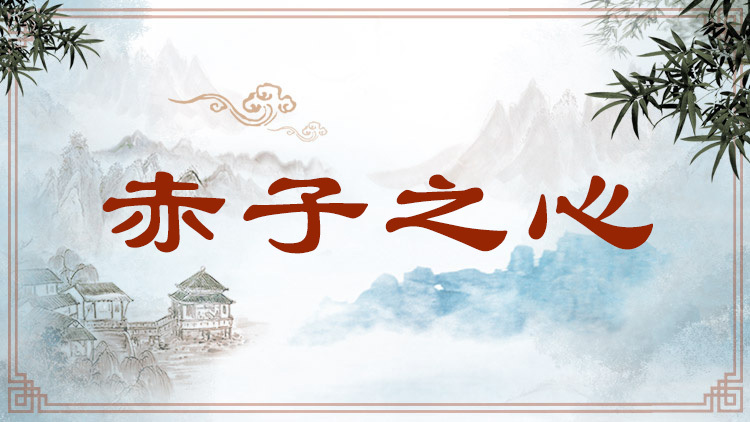Utter Innocence

本义指婴儿未经世俗染污的纯洁心灵,也指成年人仍然保有的婴儿般的赤诚真心,那种在功利世界里仍能坚守的初心。在政治伦理领域,它指人类善良的真心本性,主要是推己及人的恻隐之心或者是童真一般的尚实求真的品格;在文艺创作与审美领域,它主要指具有丰富情感和美好纯真理想的童心,是超越了一切功利心、尘俗气息以及过于理智、缺乏审美情趣的心理状态。它既是古人推崇的理想人格的一种表征,也是文艺作品中美好人物形象塑造的一种类型。
This term refers to the pure heart and soul of a newborn babe, untainted by worldly affairs. Most often, it refers to adults who retain the utter innocence of an infant, holding themselves aloof from worldly goals. In the field of political ethics, the term highlights humans' natural kindness, calling for empathy with others and child-like wonder for truth. In literary creation and aesthetics, it refers mainly to a pure state of being filled with subtle feelings and noble ideals, transcending all worldly pursuits and sophistication, and rejecting an overly rational mentality lacking aesthetic judgment. The term promotes an ideal personality worshiped by ancient Chinese and represents a laudable type of character often portrayed in literary works.
引例 Citation:
◎大人者,不失其赤子之心者也。(《孟子·离娄下》)
有德行的人,是能保持婴儿般天真纯朴之心的人。
He who is capable of retaining a childlike heart is a truly virtuous man. (Mencius)
推荐:教育部 国家语委
供稿:北京外国语大学 外语教学与研究出版社
责任编辑:钱耐安





